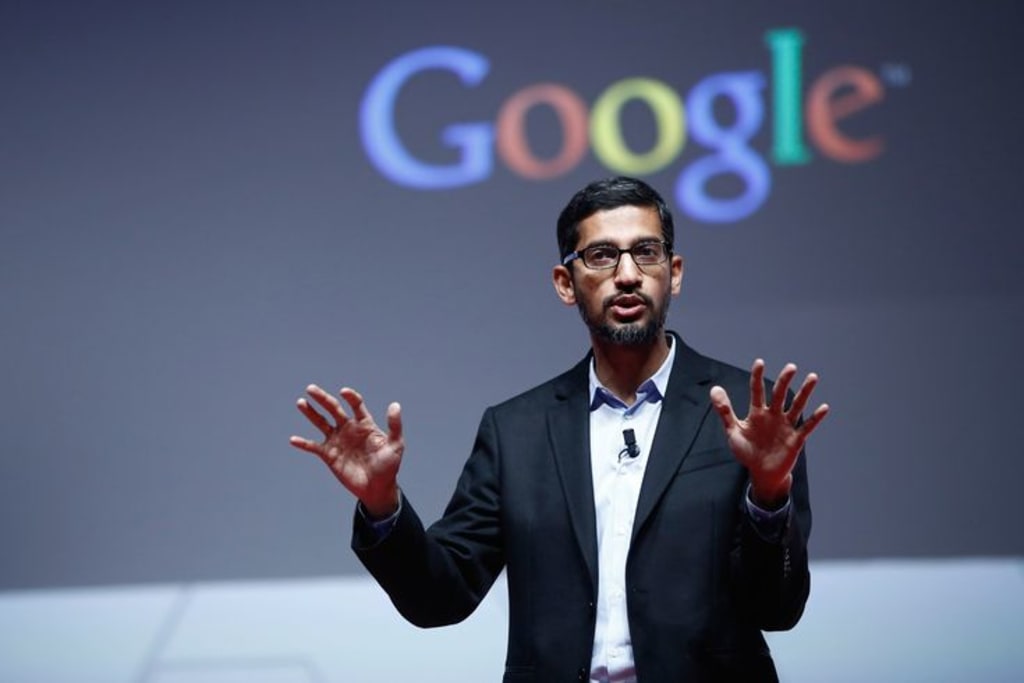
Did you know that every day, Google processes over 8.5 billion searches? That's more than one search per person on Earth, every day. What's even more incredible is that all of this is offered completely free of charge. From Google Search to YouTube, Gmail, and Google Maps, these services are accessible to everyone without cost. Yet, Google's market capitalization exceeds $2 trillion. How is such a business model sustainable, providing extensive services without direct fees?
The story of Google begins humbly in 1998, born as a research project by Larry Page and Sergey Brin. Their mission was to organise the world's information and make it universally accessible and useful. The name "Google" itself is derived from "googol," a term for the number 1 followed by 100 zeros, symbolising the vast amount of information their search engine aimed to index.
Initially, Google functioned solely as a search engine, evolving into the cornerstone of their empire. In 2000, Google introduced AdWords (now Google Ads), revolutionising digital advertising by allowing businesses to display targeted ads alongside search results. This marked the beginning of Google's monetization strategy, leveraging its vast user base and search dominance.
Over the years, Google expanded its offerings with products like Gmail (2004), Google Maps (2005), and the acquisition of YouTube (2006). They ventured into hardware with Pixel smartphones and Chromebooks, and advanced into artificial intelligence with products like Google Assistant.
Not every endeavour has been a success; Google+, Google Wave, and Google Glass are among the notable failures in their history. However, these setbacks are integral to Google's culture of experimentation and innovation, often leading to significant breakthroughs.
Today, Google's primary revenue stream remains advertising, particularly through Google Ads. In 2022, advertising accounted for $237 billion of Google's $280 billion revenue. This advertising revenue model thrives on targeted advertising, leveraging user data collected from searches, videos watched, and emails sent. This data enables Google to offer advertisers highly effective targeting capabilities, creating a symbiotic relationship where users receive relevant ads while Google monetizes user interactions.
The "freemium" model is central to Google's strategy, offering basic services for free while charging for premium features or ad-free experiences. Most users opt for the free versions, but the sheer volume of users contributes significantly to Google's revenue through targeted advertising.
However, this model faces challenges. Privacy concerns are mounting as users become more aware of data collection practices. Recent fines and scrutiny highlight the need for Google to navigate these concerns carefully. Moreover, competition from AI-driven alternatives, such as ChatGPT, poses a potential threat by providing ad-free, direct answers to queries, challenging Google's dominance in search and advertising.
In response, Google continues to innovate with AI technologies like Gemini to maintain its competitive edge. Whether Google will continue to dominate the internet or face increasing competition remains to be seen, but the evolution of digital services promises continued benefits for consumers through improved products and services.
In conclusion, Google's success story is a testament to innovation, resilience, and adaptation in the digital age. As the landscape evolves, so too will Google, ensuring its relevance and impact in the decades to come.
About the Creator
Enjoyed the story? Support the Creator.
Subscribe for free to receive all their stories in your feed. You could also pledge your support or give them a one-off tip, letting them know you appreciate their work.






Comments
There are no comments for this story
Be the first to respond and start the conversation.